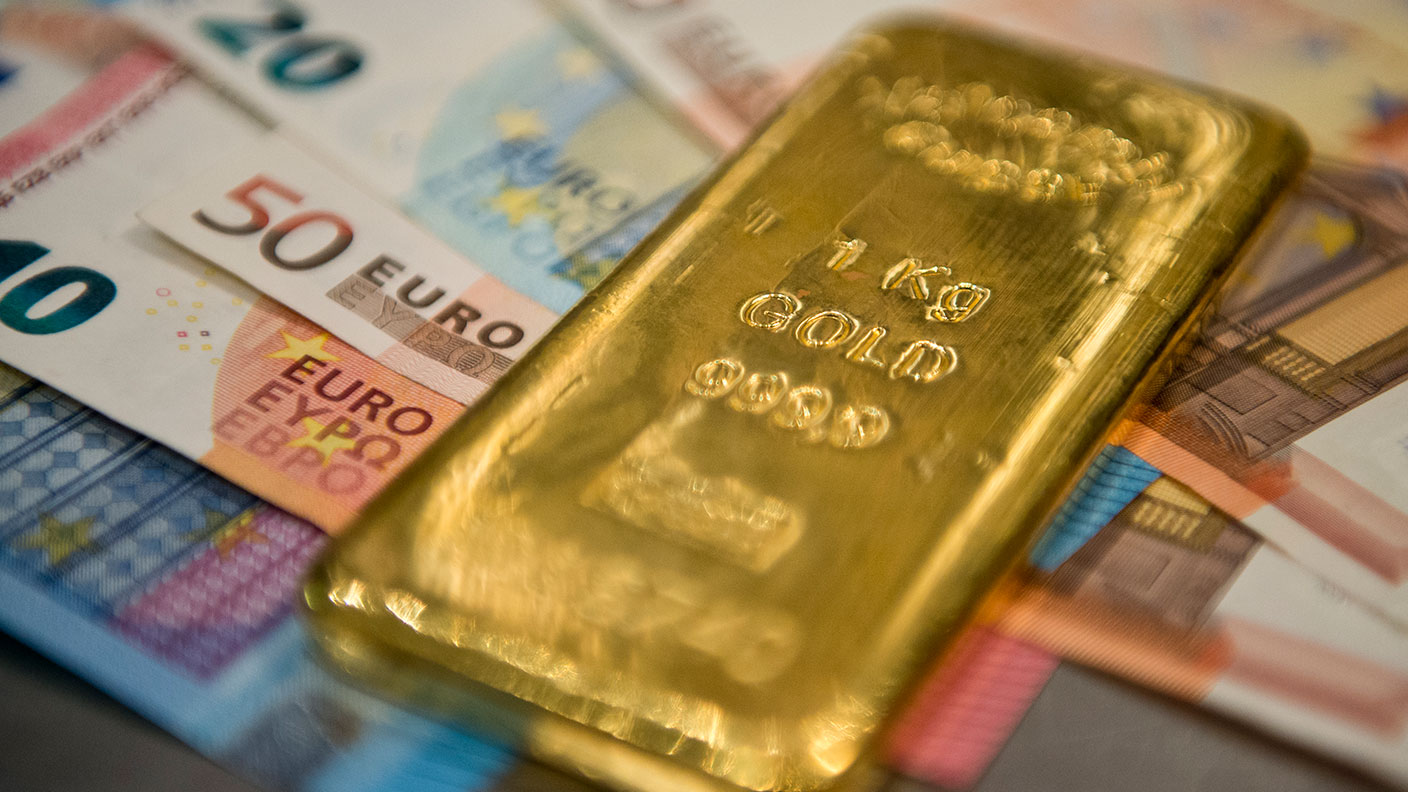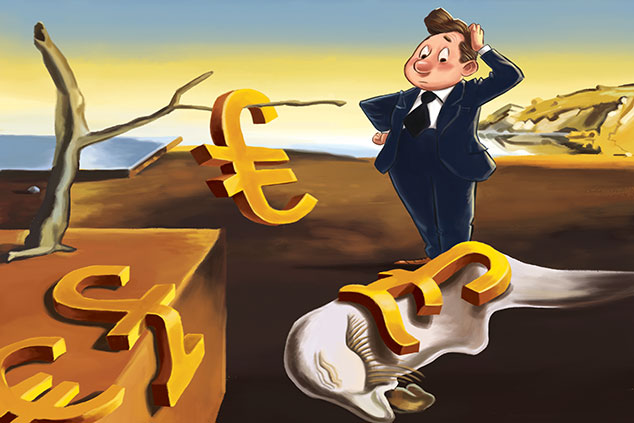Could interest rates go negative?
The Bank of England has cut interest rates and expanded quantitative easing to boost the economy. If this fails, what might it try next? Matthew Partridge reports.

Get the latest financial news, insights and expert analysis from our award-winning MoneyWeek team, to help you understand what really matters when it comes to your finances.
You are now subscribed
Your newsletter sign-up was successful
Want to add more newsletters?

Twice daily
MoneyWeek
Get the latest financial news, insights and expert analysis from our award-winning MoneyWeek team, to help you understand what really matters when it comes to your finances.

Four times a week
Look After My Bills
Sign up to our free money-saving newsletter, filled with the latest news and expert advice to help you find the best tips and deals for managing your bills. Start saving today!
What's happened?
The Bank of England has announced new measures intended to boost the UK economy and mitigate the uncertainty caused by the vote to leave the European Union. The Bank's monetary policy committee (MPC) has cut interest rates to 0.25% from their previous level of 0.5%.
It has also introduced a new £100bn funding scheme for banks that enables them to borrow at rates close to the base rate, which will it hopes encourage them to pass on the cutin full to customers.
And it has expanded its quantitative easing programme (under which it buys bonds using newly created money) to include purchasing up to £10bn in corporate bonds for the first time, as well as a further £60bn in government bonds.
MoneyWeek
Subscribe to MoneyWeek today and get your first six magazine issues absolutely FREE

Sign up to Money Morning
Don't miss the latest investment and personal finances news, market analysis, plus money-saving tips with our free twice-daily newsletter
Don't miss the latest investment and personal finances news, market analysis, plus money-saving tips with our free twice-daily newsletter
Why is the Bank worried?
While it could take several years for the UK to leave the EU, policymakers are concerned that firms will start to anticipate the decision by cutting investment, which would lead to weaker growth.
"Recent surveys of business activity, confidence and optimism suggest that the United Kingdom is likely to see little growth in GDP in the second half of this year," the MPC said in its statement accompanying the decision. Hence its actions are intended to lower interest rates for borrowers and boost credit growth, which it hopes will stimulate the economy.
Will these policies work?
The Bank's new monetary stimulus "should help the economy do better than the more pessimistic projections imply", says Capital Economics. In addition, looser monetary policy is likely to be accompanied by looser fiscal policy (more government spending than previously planned Theresa May has already pledged to scrap George Osborne's target of eliminating the deficit by the end of this parliament.
In addition, solid consumer spending could help cushion the blow from weaker business investment, and lower interest rates could help to support this by reducing mortgage costs. However, many commentators have questioned whether a 0.25% interest-rate cut can do much to stimulate the economy.
For example, 70% of households either rent their home or don't have a mortgage, so lower borrowing costs are unlikely to have a direct effect on most of them, says Ed Conway of Sky News. At the moment, the consensus forecast among private economists is for growth to be only 1.5% this year (down from 2.2% in 2015), and only 0.5% in 2017.
What are the risks?
The Bank's actions could lead to higher inflation. The MPC's statement acknowledged that the post-referendum collapse in the value of sterling was already likely to raise inflation (a weaker currency makes imports more expensive in sterling terms) and these additional measures could add to those pressures. However, at present inflation is well under the Bank's 2% target and is not forecast to go above 2% until the end of 2017.
So inflation does not appear to be an immediate problem. Of course, low interest rates are bad news for savers: First Direct has announced that it has cut its individual savings account (Isa) rates by 0.4%, with other banks expected to follow suit. Some economists believe this could hinder growth, by encouraging households to save more to compensate for the lack of interest.
Will there be more cuts?
It seems quite likely. "If the incoming data prove broadly consistent with the August Inflation Report forecast, a majority of members expect to support a further cut in the Bank Rate," the MPC's statement said. Even those Bank of England officials who were previously calling for interest-rate rises agree, with MPC member Ian McCafferty suggesting that the "bank rate can be cut further, closer to zero, and quantitative easing can be stepped up".
Already the markets are expecting a further cut, probably to 0.1%, in November. Markets also imply that interest rates are unlikely to rise for a considerable period of time: ten-year gilts now yield less than 0.6%.
Could rates even turn negative?
Interest rates are already below zero in several countries, including the eurozone, where they have been cut to -0.4%. But this radical step seems to have had little effect, or may even have backfired. There are certainly good reasons to doubt how practical they are, at least while cash exists (see below).
Bank of England Governor Mark Carney appears to agree with this view. "The MPC is clear that we see the effective lower bound as a positive number, close to zero, but a positive number," he said after the announcement. "I'm not a fan of negative interest rates." This suggests that we are unlikely to see negative interest rates in the UK any time soon, although it is hard to rule anything out in today's world of unprecedented monetary policies.
Will this mean the end of cash?
Until recently, it was assumed that interest rates could never turn negative because investors would simply take cash out of the bank and hoard it. So far, banks have got around this either by not passing negative rates on to consumers, or by disguising them in the form of higher service charges (although one small Swiss bank, Alternative Bank Schweiz, has begun imposing negative rates on retail customers).
However, the replacement of all cash with electronic currency would make it easy for policymakers to impose mandatory negative rates, as Andy Haldane, the Bank of England's chief economist, noted in a speech last year. A study by Bank of England economists John Barrdear and Michael Kumhof, published last month, claims that this would have further benefits, including lower transaction costs and reduced tax evasion, amounting to 3% of GDP.But the government says that "there are no plans to abolish cash from use in the UK".
Get the latest financial news, insights and expert analysis from our award-winning MoneyWeek team, to help you understand what really matters when it comes to your finances.

-
 Should you buy an active ETF?
Should you buy an active ETF?ETFs are often mischaracterised as passive products, but they can be a convenient way to add active management to your portfolio
-
 Power up your pension before 5 April – easy ways to save before the tax year end
Power up your pension before 5 April – easy ways to save before the tax year endWith the end of the tax year looming, pension savers currently have a window to review and maximise what’s going into their retirement funds – we look at how
-
 What would negative interest rates mean for your money?
What would negative interest rates mean for your money?Opinion There has been much talk of the Bank of England introducing negative interest rates. John Stepek explains why they might do that, and what it would mean for your money.
-
 Is the UK heading for negative interest rates?
Is the UK heading for negative interest rates?News The hints that negative interest rates are heading for Britain are now coming thick and fast.
-
Prepare yourself for negative interest rates
Editor's letter There is a lot of talk about negative interest rates coming to the UK. They're a terrible idea, says Merryn Somerset Webb.
-
Trump urges the US Federal Reserve to bring in negative interest rates
News Donald Trump has urged the Federal Reserve to embrace negative interest rates.
-
 What are negative interest rates and could they happen here?
What are negative interest rates and could they happen here?Analysis Negative interest rates – where banks pay you to borrow money – now exist in many parts of the world. John Stepek explains why they are a terrible idea, and how likely we are to see them in the UK.
-
The dangers of negative interest rates
Features Negative interest rates could spark the next financial crisis. And central bankers could end up the object of the public's wrath, says Merryn Somerset Webb.
-
 Navigating the weird world of negative interest rates
Navigating the weird world of negative interest ratesTutorials Investors are paying good money to be allowed to lend money to governments across the world. What on earth is going on, and what does it mean for your money? John Stepek reports.
-
How negative interest rates could spell the death of cash
Features In the topsy turvy world of negative interest rates, the pound in your pocket undergoes a bizarre change. John Stepek explains what that means for investors.